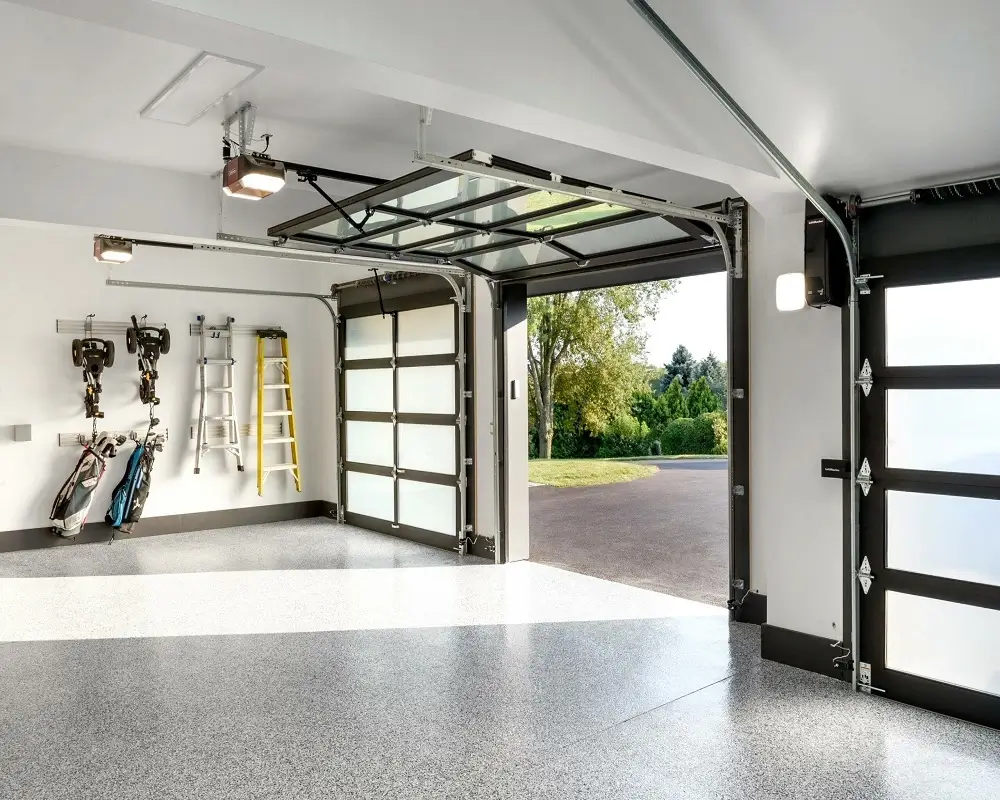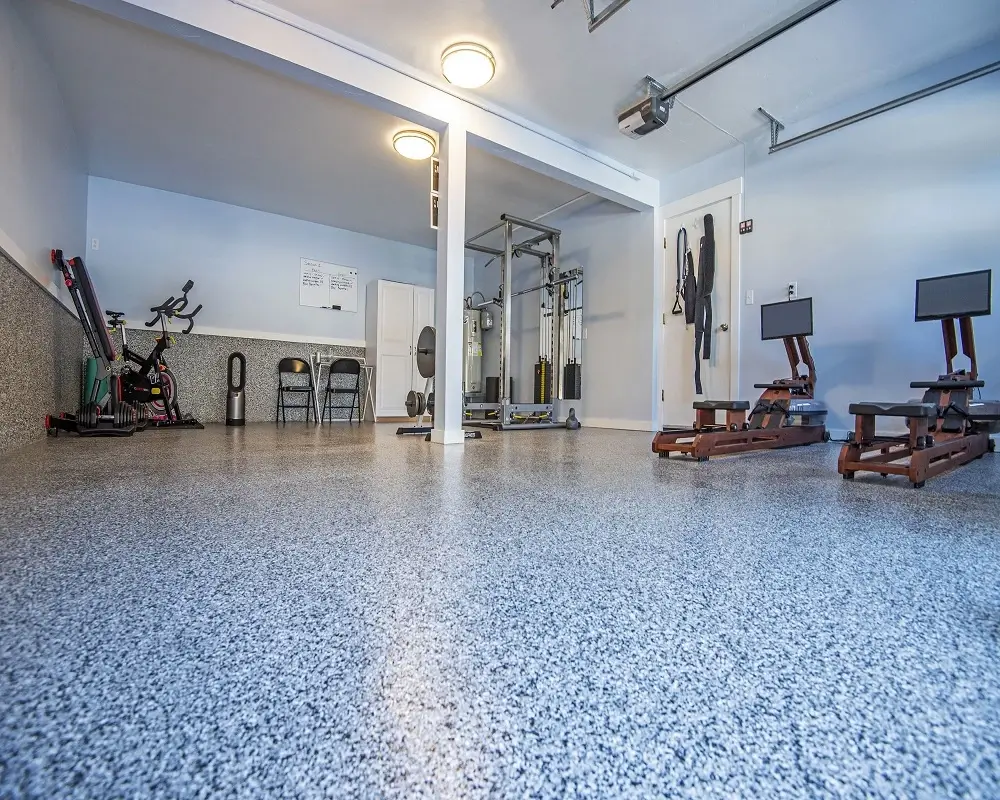FAQ
A: Epoxy garage flooring is a durable and protective coating applied to concrete garage floors. It is made by mixing epoxy resin and a hardening agent, resulting in a strong and seamless surface.
A: The installation time for epoxy garage flooring can vary depending on the size of the garage and the condition of the existing floor. Generally, it takes around 2-3 days, including surface preparation, application, and curing.
A: Yes, one of the main advantages of epoxy garage flooring is its resistance to stains and chemicals. The non-porous surface of epoxy coatings prevents oil, chemicals, and other substances from penetrating, making them easy to clean and maintain.
A: Cleaning epoxy garage flooring is simple. Regular maintenance involves sweeping or dusting to remove loose dirt and debris. For more thorough cleaning, a damp mop or cloth with mild soap and water can be used. Avoid using harsh chemicals or abrasive cleaners.
A: Yes, epoxy garage flooring offers various customization options. You can choose from a wide range of colors, finishes, and decorative elements to create a personalized look for your garage.
A: Absolutely! Epoxy garage flooring is suitable for both residential and commercial garages. Its durability, easy maintenance, and aesthetic appeal make it a popular choice for homeowners and businesses alike.
A: When properly installed and maintained, epoxy garage flooring can last for many years. The lifespan can vary depending on usage, traffic, and maintenance, but it is not uncommon for epoxy floors to last 10-20 years or even longer.
A: While some DIY enthusiasts may choose to install epoxy garage flooring themselves, it is recommended to hire a professional for the best results. Professional installers have the necessary expertise, equipment, and knowledge to ensure a proper installation that maximizes the durability and longevity of the flooring.





